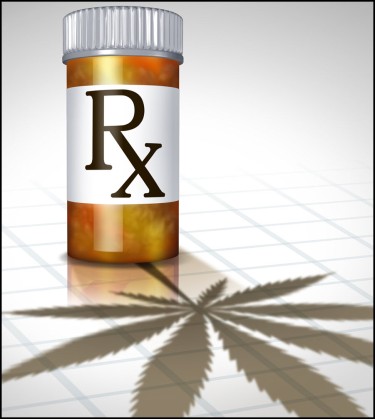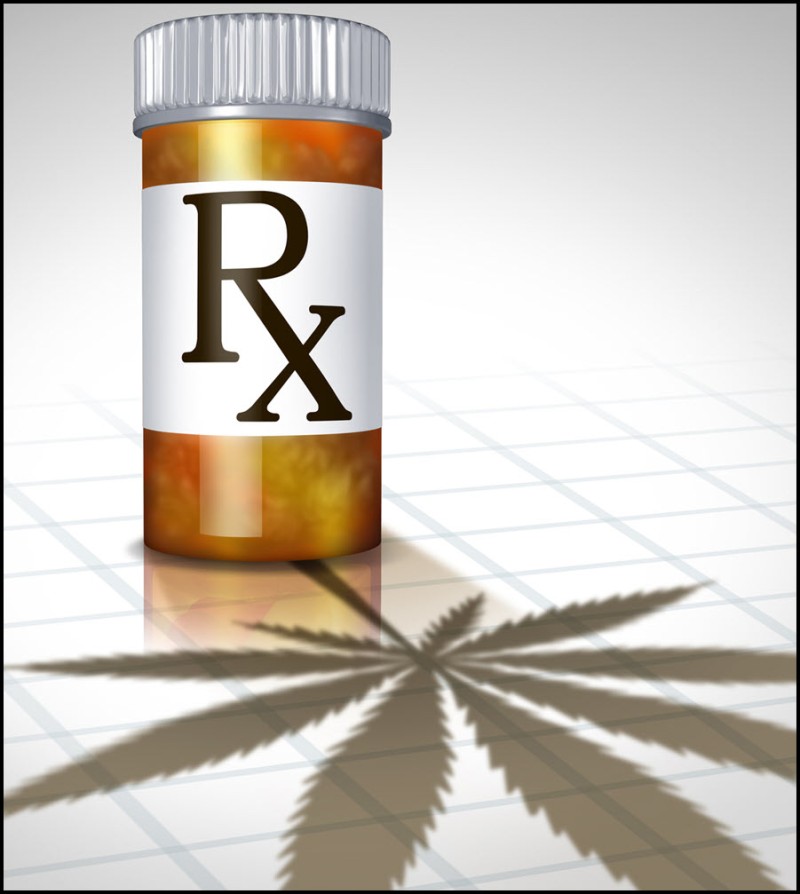
Can Cannabis Complement Functional and Alternative Medicine?
Modern medicine has failed us, big time.
The very doctors who are supposed to heal us, instead focus on earning extra money by shoving opioids and other deadly medications down our throats. Our healthcare system has proven deadly, a threat to public health even, as doctors are trained to keep us sick by using prescription medications that are dangerous in many, many cases.
But there seems to be a growing, albeit silent, shift around the world. More people are seeking out functional medicine, because functional medicine practitioners look at the root causes of what causes illness in the first place. Something that modern healthcare practitioners never do or have never been trained to do: use a diet and lifestyle approach to treat and prevent disease.
It seems like common sense to examine one’s diet and lifestyle before taking different kinds of pills to try and correct a disease – which is primarily what much of modern medicine does. Functional and integrative medicine educates patients about the kind of food you are eating, what you should avoid, and how to avoid common deadly toxins that are in our everyday foods. It also teaches you that food itself IS medicine, and it isn’t what you eat but more of what you don’t eat that can make the biggest difference in how you feel.
Instead of recommending prescription drugs, functional medicine can advise specific supplements that can help you manage your condition, reduce inflammation, and feel better.
Where does cannabis fit in the world of functional medicine?
Depending on where you live in the world, functional medicine practitioners may be able to integrate cannabis in your recommended lifestyle changes. After all, the therapeutic benefits of cannabis have long been known – as far back as ancient times! Cannabis is one of the oldest documented natural medications on the planet.
In many ways, functional medicine is a modern way of referring to holistic medicine. And holistic medicine has included the use of marijuana since ancient times, especially in countries such as India and China. Holistic medicine after all, looks at a much wider, all-encompassing approach to well-being, health, and illness prevention. It seeks to balance the body and mind, and cannabis can do that effectively and safely.
Functional medicine practitioners may recommend using safely-sourced cannabis or CBD oil, as long as it’s completely free from pesticides and other toxins, to help with nausea, chronic pain, insomnia, epilepsy, and anxiety to name a few. Cannabis can also be used to treat Alzheimer’s disease, Parkinson’s disease, autoimmune conditions, and assist managing symptoms of patients receiving end-stage cancer care and palliative care.
The human body has its very own endocannabinoid receptor system that works with the incredible plant medicine – cannabis – for treating a wide range of ailments. The endocannabinoid system or ECS interacts with the cannabinoids and terpenes in the plant, and helps to regulate inflammation, digestion, immunity, memory, appetite, sleep, pain, and so many other important functions.
There are several functional medicine doctors who practice in cannabis-legal states, so do your research and give them a call if you’d like to learn more about how you can benefit from the two.
Precautions To Keep In Mind
It also must be said that while a great majority of pharmaceutical medications can be harmful, there are several that are truly beneficial and useful. For these reasons, integrative and functional medicine doctors may not recommend that you quit them altogether because your health depends on continuing them.
Additionally, age must be taken into consideration. There have been several strong studies stating that using cannabis at an early age, such as in the teen years or before the age of 21, can have serious impacts on brain development. Functional medicine doctors will not support the use of THC products before a patient reaches the age of 21.
There must also be an emphasis on the quality and source of cannabis used, if you are to use it alongside other functional and integrative medicine guidelines. It’s likely that a doctor will say the same thing, and may most probably already recommend existing products that meet their high standards for safety. This is because most CBD products in the market are not regulated, and oftentimes even have misleading cannabinoid contents. That said, there are specific medical cannabis brands that are thoroughly tested and meet the requirements needed for use by medical patients.
Conclusion
Cannabis is a useful complementary tool that you can use when practicing functional medicine, as well as other alternative forms of medicine. Other common tools you can safely use alongside them include meditation, massage therapy, yoga, acupuncture, and aromatherapy among others.
No matter what kind of medicine you follow, remember that cannabis should not be viewed as an all-in-one solution. You have to do your part by eating well, avoiding toxins and harmful chemicals in your food and environment, limiting stress, getting proper sleep, and exercising regularly. Cannabis can complement these and a functional medicine approach to wellness, but it isn’t a complete solution for any kind of disease.
Cannabis is one of the safest and most effective natural medicines in the world. It’s been around long before modern pharmaceuticals were developed, and it’s only right that patients who need this medicine have access to it. Cannabis, alongside functional or alternative medicine, can be the way forward to healing without the dangers and addictions that come with pharmaceutical drugs and modern medicine.







